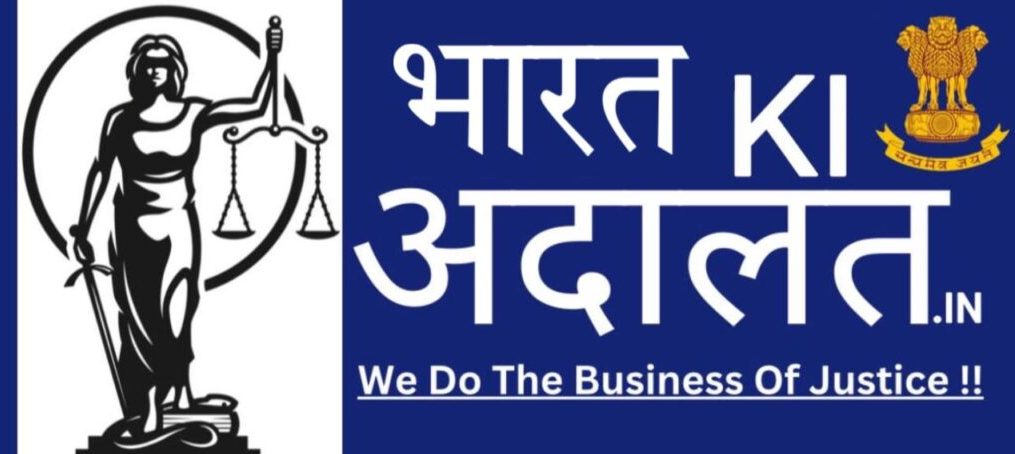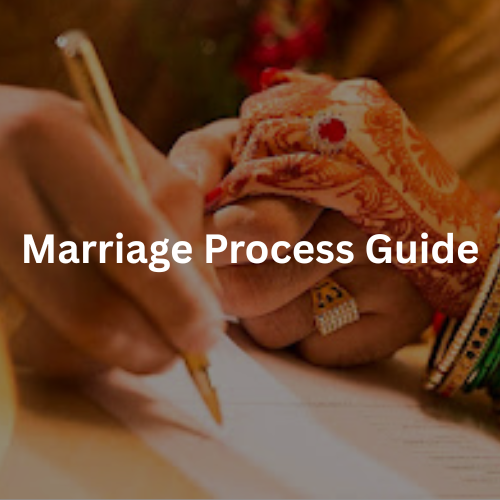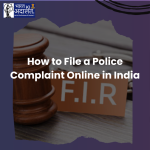Court Marriage Process: Step-by-Step Guide
Planning a wedding involves much more than ceremonies and traditions. Couples who want legal recognition must follow a proper registration process. This blog provides a complete Court Marriage Process: Step-by-Step Guide, including eligibility, required documents, fees, timeline, and online application tips. Follow this legal checklist to ensure a smooth and hassle-free experience.
Eligibility for Marriage Registration
Couples must fulfill certain conditions under the Hindu Marriage Act, Special Marriage Act, or other applicable personal laws. The groom must be at least 21 years old, and the bride must be 18. Both partners must willingly consent to the marriage. Neither partner should already have a living spouse, and both must be mentally fit for marriage.
Inter-religious or inter-caste marriages follow the Special Marriage Act. In such cases, a 30-day public notice period applies.
Required Documents
Carry original documents and photocopies while applying for marriage registration. The essential list includes:
- Identity proofs (Aadhar Card, Voter ID, Passport)
- Age proofs (Birth Certificate, 10th Marksheet)
- Address proofs of both parties
- Passport-size photographs of bride and groom
- Marriage invitation card (optional, but helpful)
- Two witnesses with valid ID and address proofs
- Affidavit of marital status, nationality, and date of marriage
- Divorce decree or death certificate (for second marriage cases)
Fees for Marriage Registration
Government fees vary slightly by state and type of marriage act. On average:
- Under Hindu Marriage Act: ₹100 to ₹150
- Under Special Marriage Act: ₹150 to ₹250
- Court marriage fees: ₹500 to ₹1,000 depending on service charges
- Notary and affidavit charges: ₹200 to ₹400
Private legal assistance helps avoid mistakes, especially in inter-religious or NRI cases.
Timeline for Marriage Registration
The Hindu Marriage Act allows immediate registration after the wedding. Couples must register within 60 days for smooth processing. The Special Marriage Act requires a 30-day notice before solemnization, followed by document verification and registration.
In most cases, the entire process—from application to certificate delivery—completes within 10 to 45 days, depending on the local registrar’s office.
Online Application Tips
Several state governments offer online registration portals. To apply efficiently:
- Visit the official website of your local marriage registration authority.
- Create an account and fill in the couple’s details accurately.
- Upload scanned copies of required documents.
- Select a preferred appointment date for verification.
- Take a printout of the acknowledgment slip and carry it on the day of appointment.
Cross-check the documents before uploading. Also, ensure the witnesses accompany you with their documents. Advocate Sagar Sharma assists clients with documentation, online form filling, and end-to-end coordination for error-free registration.
Why Choose Advocate Sagar Sharma?
With deep legal expertise and hands-on experience, Advocate Sagar Sharma helps couples avoid common legal delays. He guides through each step—whether it’s a Hindu, Muslim, Christian, court, or special marriage.
To conclude, legal marriage registration ensures proof of marriage, protects legal rights, and supports visa, inheritance, and insurance claims. Reach out to Advocate Sagar Sharma for a stress-free and timely marriage registration process.




